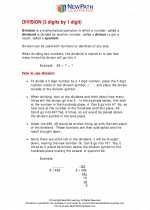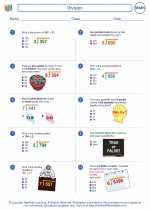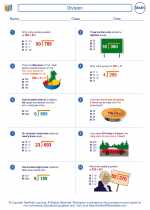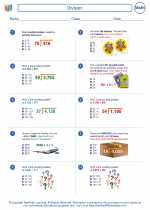Terms in Mathematics
In mathematics, a term is a single mathematical expression. It could be a single number, a variable, or a combination of numbers and variables multiplied together. Understanding terms is important in algebra because they form the building blocks of algebraic expressions and equations.
Types of Terms
There are different types of terms based on their composition:
- Constant Terms: These are terms that consist of just a single number. For example, 5, -3, and 2.7 are constant terms.
- Variable Terms: These are terms that consist of just a single variable. For example, 3x, -2y, and 0.5a are variable terms.
- Coefficient: The coefficient of a term is the numerical factor of a term. In the term 4x, the coefficient is 4. In the term -3y, the coefficient is -3.
- Like Terms: Terms that have the same variables raised to the same powers are called like terms. For example, 3x and 5x are like terms because they both have the variable x raised to the power of 1.
Terms in Algebraic Expressions
Algebraic expressions are made up of terms connected by addition or subtraction. For example, in the expression 2x + 3y - 5, the terms are 2x, 3y, and -5. It's important to be able to identify and combine like terms when simplifying algebraic expressions.
Study Guide
Here are some key points to remember about terms in mathematics:
- Understand the difference between constant terms and variable terms.
- Be able to identify the coefficient of a given term.
- Practice combining like terms in algebraic expressions.
- Remember that terms are the building blocks of algebraic expressions and equations.
By mastering the concept of terms, you'll be better prepared to work with algebraic expressions and equations in your math studies.
.◂Math Worksheets and Study Guides Sixth Grade. Division

 Worksheet/Answer key
Worksheet/Answer key
 Worksheet/Answer key
Worksheet/Answer key
 Worksheet/Answer key
Worksheet/Answer key
